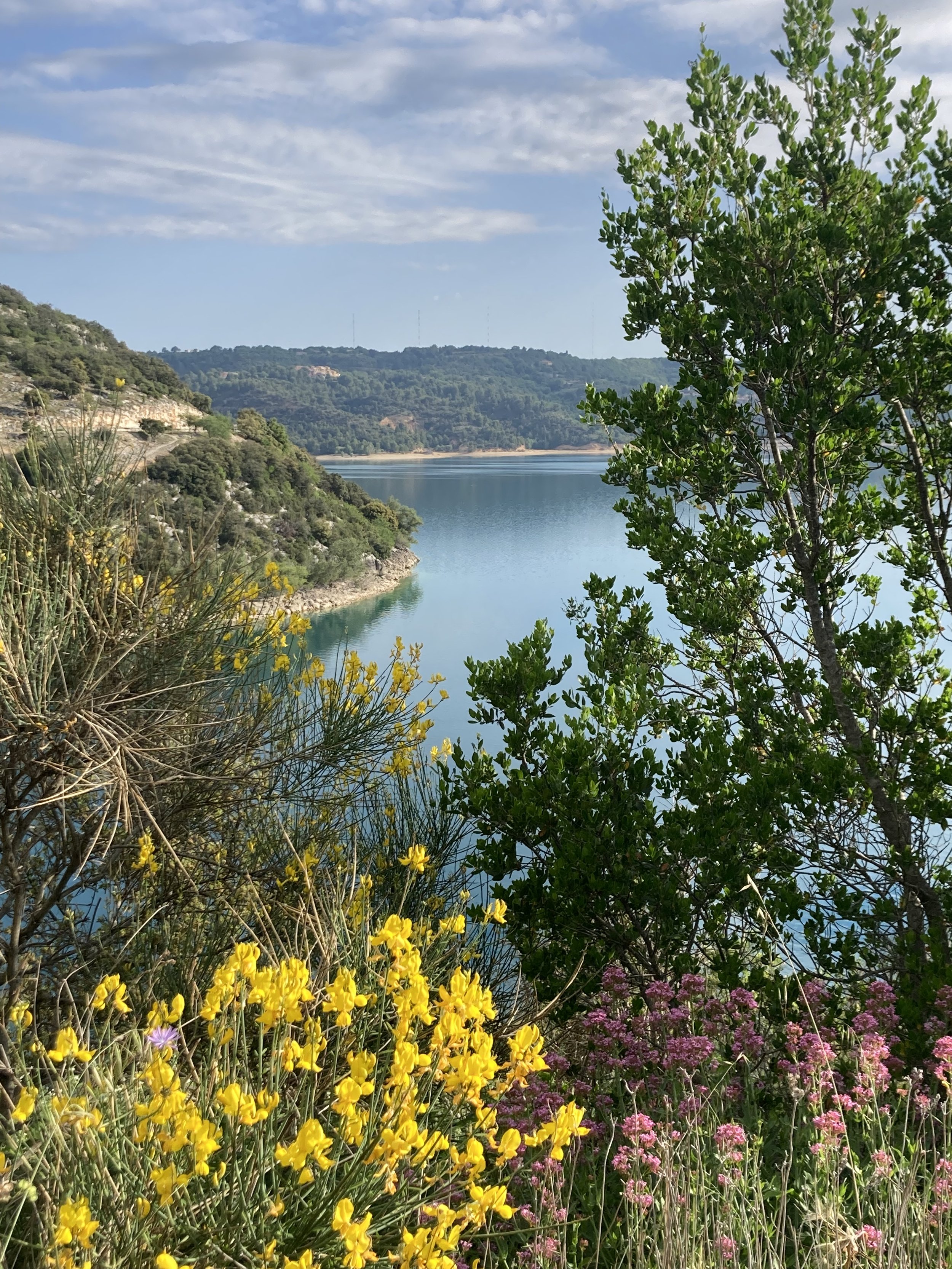Lac de Sainte-Croix, Verdon
My last blog looked at reducing current stress. This one is about dealing with future stress. And why I am writing about stress in the summer, is because you have probably either just been on holiday, are on holiday, or about to go on holiday. And it’s a good time to reflect on how your much-longed-for break has either topped you up, or pushed you closer to your limits. Hopefully the former. But quite possibly the latter.
Travel is stressful, this year in particular. Overbooked airlines, cancelled flights and missing luggage is the norm. It can mean you are barely recovered by the time you are shoving the semi-deflated unicorn back into your case, and reluctantly buying low-grade airport snacks at high-grade prices whilst your flight is pushed back yet another hour.
But there is good news. There are things we can do NOW to improve our response to stressful situations in the FUTURE. I tried this recently, and it works. That’s because these tactics are not airy-fairy hacks, but based on the neuroscience of how we respond to stress. We can counter the natural processes of our brain to make our responses more useful to us.
How do I reduce stress?
Wishing I had more (read, “any”) French friends, I signed up for a four-day trip to the Verdon with my local bike club. Due to a phenomenon called temporal discounting, where we attribute different values to things and actions as time passes, I thought back in November, that I would be ready for a spring getaway. I mean, May was ages away. Six months to brush up my French. No problem, low stress. I wasn’t going to be sharing a room with a stranger. What’s the worst that could happen?
Heading towards Baudinard-sur-Verdon with “les gars”
As the months ticked by, my stress levels rose. I worried about EVERYTHING. Six hours in a minibus with people I didn’t know. Would the riding be too hard? Would anyone talk to me? Would I understand them if they did? Jeez – I even worried about what clothes to bring and whether to put my bike in a bag or not.
I very nearly pulled out.
This is where the stress management came in. With the benefit of my recent study in applied neuroscience, I tried out something new. I realised that each time I thought about the trip, I was also imagining all the things that could go wrong. So I was making (and repeating) a direct association of thinking about the trip, with a load of negative assumptions. By the way, this sort of thinking often turns into rumination, which I will talk about another time.
But isn’t some stress good for you?
Yes - it can be helpful in small doses, you know when a bit of stress sharpens us up and actually improves our performance? But repeated negative thought patterns constantly activate our amygdala and create a cascade of hormones which can be toxic when sustained or cyclical. So ongoing stress is not healthy. I should add that it wasn’t just the trip that was the source of stress; various other life events were compounding feelings of impatience, frustration, and oh-for-god’s-sake-just-let-ME-do-it-ness. That was all relevant because environmental factors play a significant role in our tolerance for stress at any given time.
Repeatedly associating believable positive thoughts with a previous or anticipated negative experience, helps the brain to change its connections and reduce future stress.
Anyway, I went into human guinea pig mode, and made myself extinguish the association of “bike trip” and “what could go wrong”. So I thought instead (and often said aloud) things like:
It’s going to be an adventure;
I’m looking forward to discovering a new place;
My French will improve;
And I slowly changed the emotional intensity of my apprehension about the trip, and replaced it with a positive association.
What was important for me was to be honest and realistic about the new positive thoughts. I used things I could get behind, rather than hyperbole like, “it’s going to be amazing”. That just wasn’t true, and would not have helped me. For this to work, you need regular repetition and to use images and phrases that you actually believe in. This is what helps the brain to change its connections, and reduce future stress.
And before I knew it, it was D-day. And I was actually (cautiously) looking forward to it.
Lycra-clad backsides framed by Provençal poppies
I arrived at the school playground (no, really) where about twenty French men were playing Tetris with the same number of bikes, various bits of luggage, and two (clearly too small) municipal minibuses. Several cases of beer were on the luggage pile. A good sign.
And what happened? A guy from the group I usually ride with was one of the two drivers. Tu viens avec moi, he stated, beckoning me to sit upfront with him. I could have cried. And that was how it was all the way. Inclusive. Supportive. Mad. Eye-opening. Fun. And it DID turn out to be an adventure, exploring new landscapes and being surrounded by incredible nature. And, if you count being able to swear like a French farmer, then yes, my French did improve too.
Riding high in the Gorges du Verdon















